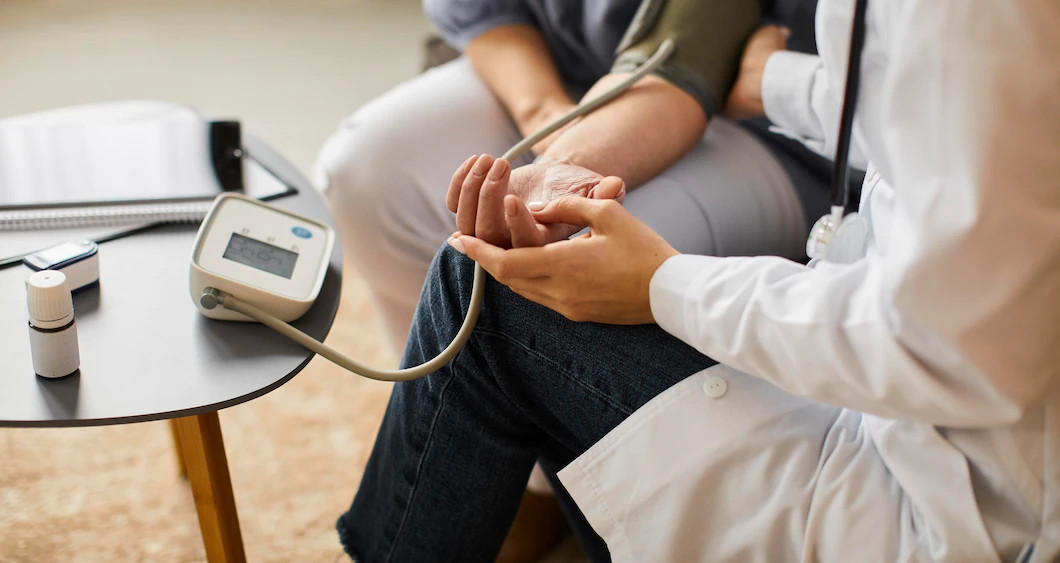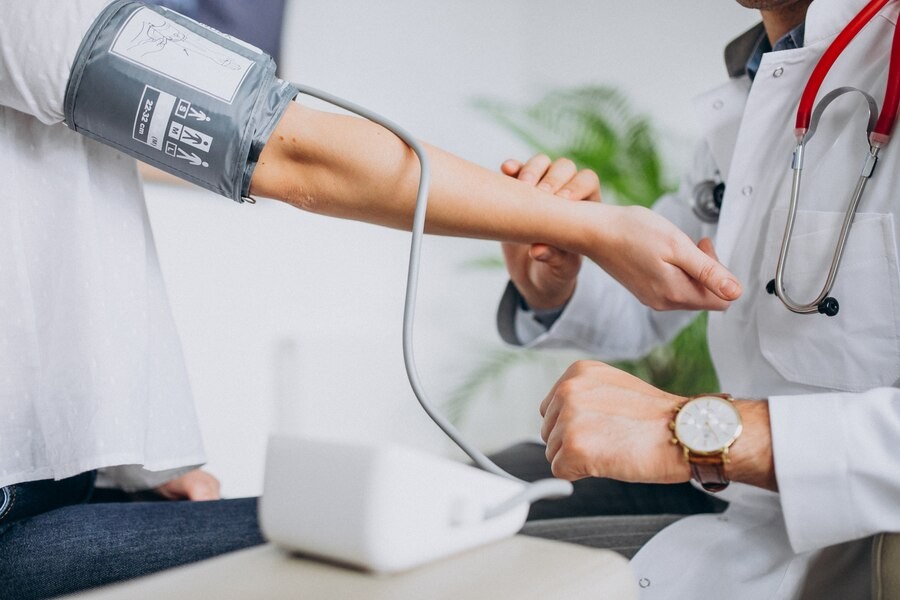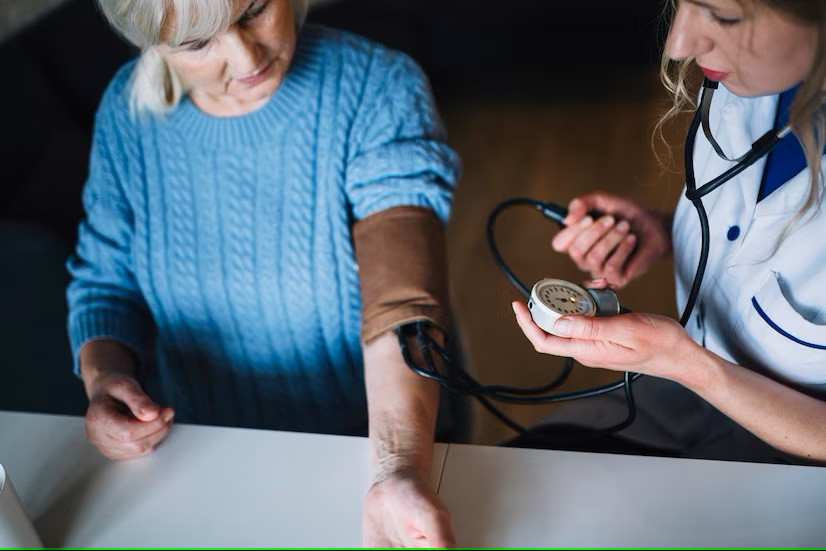Hypertension, or high blood pressure, can affect not only the heart but also other organs, including the kidneys and eyes. Uncontrolled hypertension, also known as hypertensive retinopathy, can result in permanent visual impairment (blindness).
What are the effects of hypertension on vision disorders?
Uncontrolled high blood pressure might damage blood vessels in the retinal region. The retina is a layer of tissue in the back of the eye that serves as a light catcher. It converts light and images that enter the eye into nerve signals that are delivered to the brain and eventually interpreted into images.
When blood pressure is high, the blood vessels in the retina become thick and narrow, reducing blood supply to the optic nerve. If not treated properly, high blood pressure can damage the blood vessels around the eyes, resulting in nerve damage and vision problems.
This condition is known as hypertensive retinopathy, and in extreme cases, it can lead to blindness. The risk of blindness will increase if you have uncontrolled diabetes, high cholesterol, or are an active smoker.
Read more: Is It True That Anxiety Disorders Can Trigger Hypertension?
What are the risks and symptoms of hypertensive retinopathy?
Symptoms of hypertensive retinopathy might develop without warning and are only found during an eye examination. This condition progresses slowly, and it is typically only noticeable when it is severe. You may not have symptoms until the condition has developed rapidly. Possible signs and symptoms are:
- Impaired vision
- Eye swelling
- Rupture of blood vessels
- Double vision and headache
The following risk factors can contribute to hypertensive retinopathy:
- Uncontrolled high blood pressure
- Cardiovascular diseases
- Atherosclerosis
- Diabetes
- Smoker
- Uncontrolled high cholesterol
- Overweight
- Frequently consume unhealthy foods heavy in fat, protein, trans fat, sweets, and sodium
This disorder is more common in women than men.
Read more: Hypertension, What Are The Symptoms And Risks?
What are the long-term effects of hypertensive retinopathy?
People with hypertensive retinopathy are at significant risk of retinal-related problems, including:
- Ischemic optic neuropathy is a disorder in which high blood pressure prevents normal blood flow in the eye, affecting the optic nerve.
- Retinal artery occlusion is a condition in which the artery that transports blood to the retina is stopped by a blood clot. As a result, the retina does not receive enough oxygen or blood, and the patient will lose vision.
- Retinal vein occlusion occurs when a blood clot blocks the vein that takes blood from the retina.
- Nerve fiber lining ischemia is a nerve fiber injury that can result in cotton wool patches or fine white retinal ulcers.
- Malignant hypertension is an uncommon disorder in which blood pressure rises suddenly, disturbing vision and resulting in sudden loss of vision. This is an emergency situation that demands immediate intervention.
Uncontrolled high blood pressure can impair the functioning of other organs, including the eyes. If you have high blood pressure and suddenly develop vision problems, you should see a doctor immediately. If you need medical advice or consultation, you can also make use of the consultation features that are available in the Ai Care application by downloading the Ai Care application from the App Store or Play Store.
Looking for more information about other diseases? Click here!
- dr Nadia Opmalina
Medline Plus. High Blood Pressure and Eye Disease. Available from: https://medlineplus.gov/ency/article/000999.htm
Mount Sinai. High Blood Pressure adn Eye Disease/. Available from: https://www.mountsinai.org/health-library/diseases-conditions/high-blood-pressure-and-eye-disease#
WebMD Editorial. (2022). High Blood Pressure and Eye Disease. Available from: https://www.webmd.com/hypertension-high-blood-pressure/eye-disease-high-blood-pressure
Badii, C. (2023). Making Sense of Hypertensive Retinopathy. Available from: https://www.healthline.com/health/hypertensive-retinopathy










